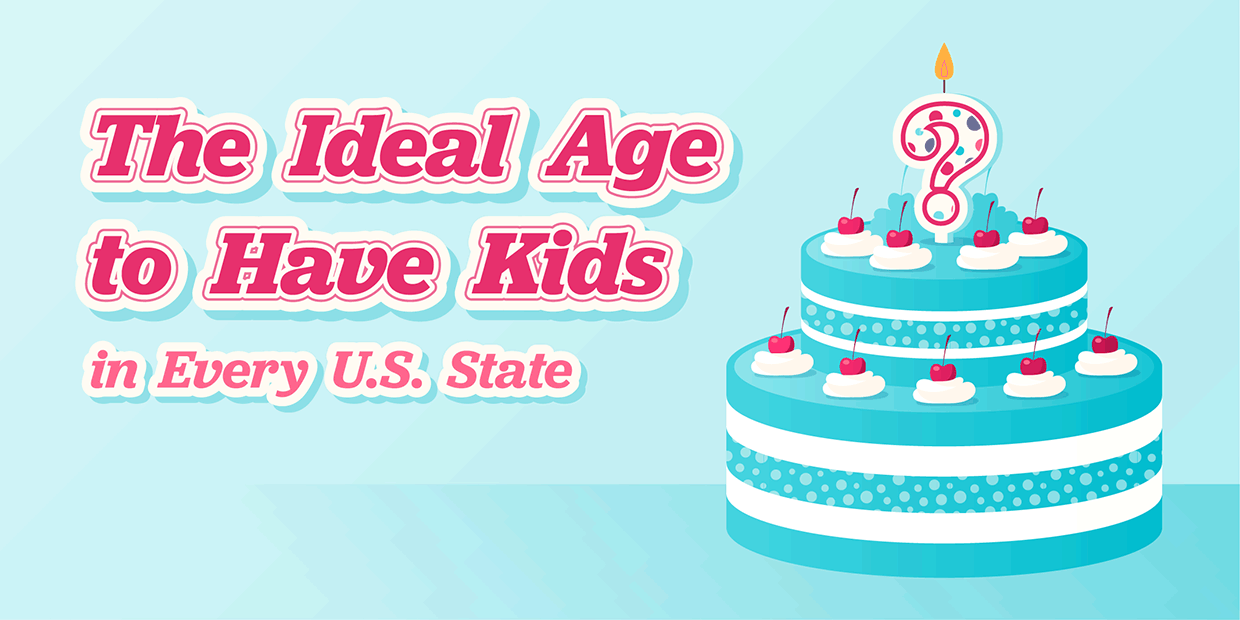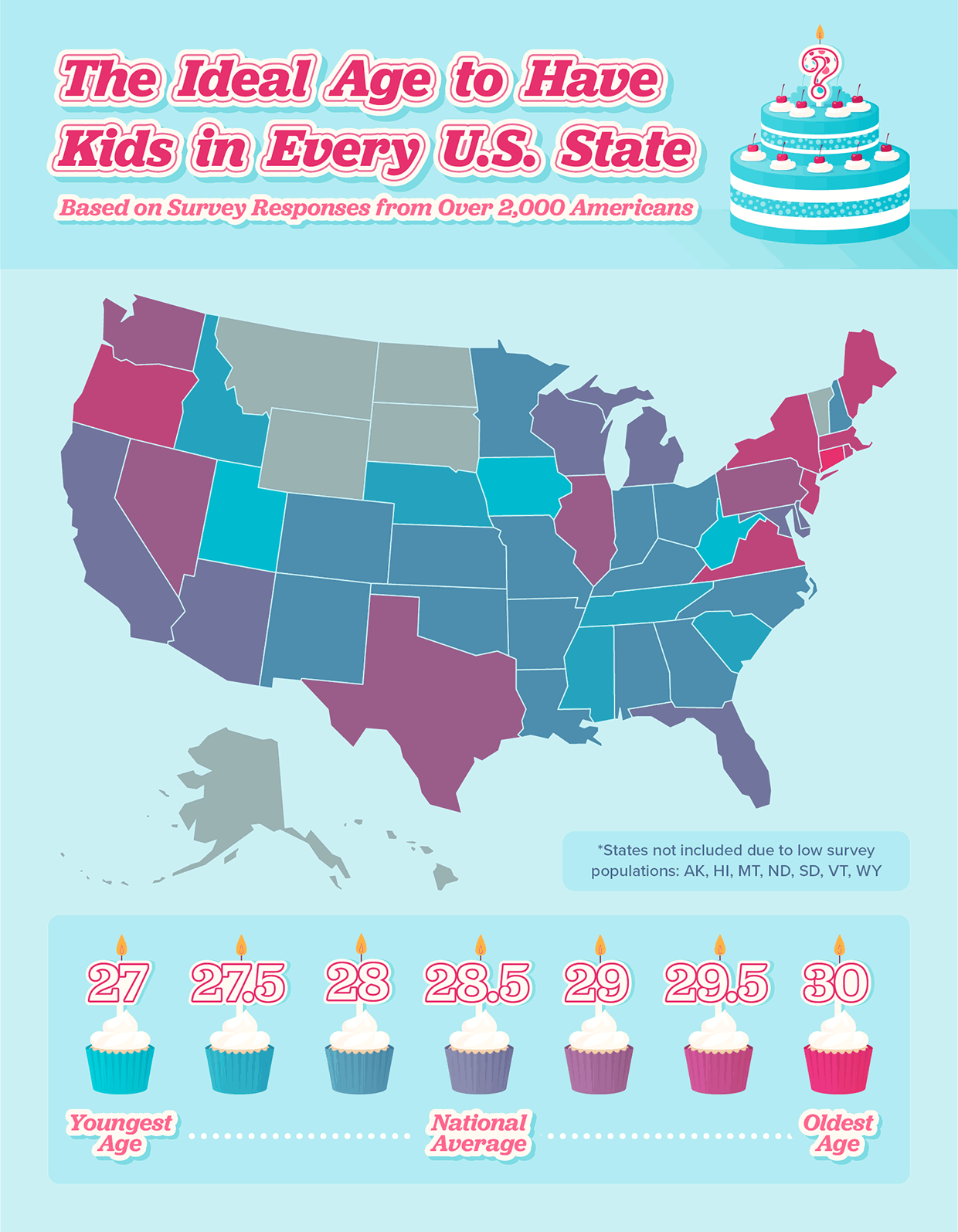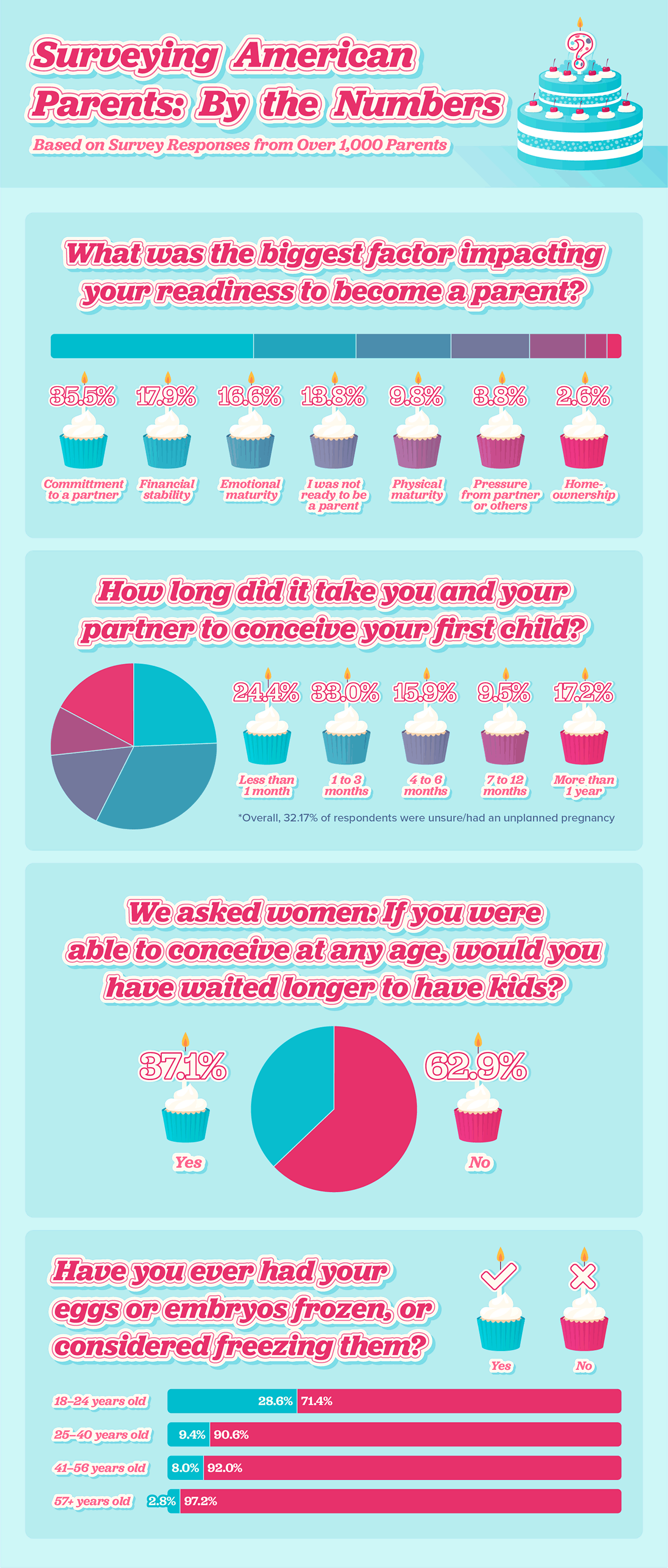
For many people, the final step in growing up and settling down is making the decision to start a family of their own. When that decision is made, it is a deeply personal choice that varies from person to person. We wanted to get some more insight into this by finding out what the average American calls the ideal age to start having kids. We surveyed people across the U.S. to find out how that changes regionally and then surveyed parents to get more insight into the factors that made them ready to become parents.

Interestingly, the ideal age to have kids in the U.S. seems to vary from state to state. On one end of the spectrum, you have Iowa, where the average age for parenthood is 27. Iowa residents gave the youngest average answer for the ideal ages of both men and women to start having children, 27 years 7 months and 26 years 4 months, respectively.
Similarly, West Virginia and Utah residents’ answers also averaged around 27 as the right age to become a parent, with both states saying that 26 years 7 months was the ideal age for women to become mothers and 27 years 8-10 months was the ideal age for men.
On the other hand, states like Connecticut, Massachusetts, and Maine believe that people should wait slightly longer before becoming parents. Residents from Massachusetts and Maine both gave an average answer of just under 30 for when people should have their first kid, while Connecticut said 30 years 1 month. Connecticut was the only state to have an average ideal age over 30.
Oregon, another state with an ideal age on the older side (29 years, 9 months), had the largest gap between the ideal age for men and women to become parents at 31 years old and 28 years 6 months old, respectively. That said, the gap only comes out about 2.5 years, so it’s not exactly a May-December romance!

Based on our survey, the ideal age the average American thinks people should be ready to have kids is around 28 years old. This begs the question: what other factors make people ready to become parents?
Outside of age, there are many aspects of one’s life that impact their readiness to become a parent. Our respondents noted their biggest influences were committing to a partner (34%), achieving financial stability (18%), and emotional maturity (17%).
One of the main constraints when it comes to becoming a parent, at least for women, is the biological clock. While some exceptions exist, female fertility sharply declines in the mid to late thirties, and it’s quite difficult to naturally become pregnant after 45.
This limit seems to weigh on the minds of American women as 37% of mothers surveyed said they would have waited longer to have kids if it was biologically possible to conceive at any age. Additionally, 1 in 3 women (29) aged 18-24 has considered freezing their eggs or embryos. That’s a significant increase from women in older generations, with 9% ages 25-40, 8% ages 41-56, and 3% over 57 having considered it.
Though there is some variation throughout the U.S., most people agree that our late twenties and early thirties are the best age to have kids.
When it comes to starting a family, there are numerous decisions to consider, ranging from the ideal age to have our first child and choosing a suitable name for the baby, to deciding where we want to raise our family and which schools our children will attend. Fortunately, Chicco is here to help whenever you decide you’re ready to welcome a little one into your family. Explore our range of car seats, with the assurance that your child's safety is our top priority, and know that there's one less decision to worry about.
We surveyed over 2,000 people from 44 states over 2 weeks in April 2023 to find out what Americans from every state think the ideal age is to start having kids. We asked them about the ideal age for men and women to see where the differences lie.
At the same time, we surveyed 1,000 parents to find out what most impacts one’s readiness to have children by asking questions about when they knew they wanted to have kids, what their most significant influences were, and whether or not they would have waited longer if they could.
